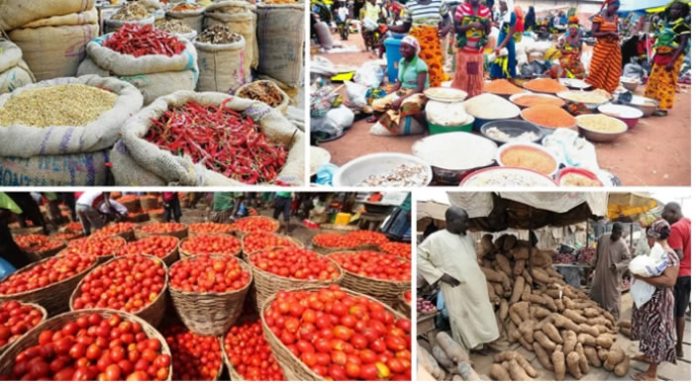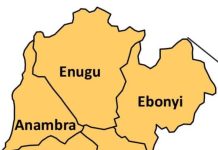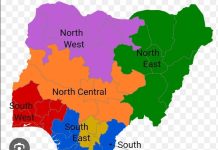

DANIEL ADAJI discusses how people are embracing cheaper substitute food as a way to cope with high inflation in the country
In June, Nigeria’s inflation reached a 28-year high of 34.19 per cent, causing hardship for many Nigerians. The situation is worsened by a 40.87 per cent increase in food inflation, which is attributed to insecurity in the country’s agricultural regions. As a result, many people are struggling to afford essential food items.
The State of Food Security and Nutrition in the World 2024 report by the United Nations indicated that about 172 million Nigerians or 78.7 per cent of the country’s population were unable to afford a healthy diet in 2022.
According to the report, as of 2022, a Nigerian, who could afford a healthy diet, would need about $3.83 per day to be able to do so.
This challenge has made many Nigerians change their taste, going for cheaper local food, such as cocoyams, soybeans, etc.
Cocoa yam, known for its rich, nutty flavour and versatility, has become a preferred substitute for rice and gari. Vendors in bustling markets, such as Wuse and Utako in Abuja, now proudly display pyramids of cocoa yam, as it enjoys more patronage due to its affordability and nutritional value.
“I used to buy rice and gari,” said Mrs Anne Ikechukwu, a mother of three. “But with prices skyrocketing, I had to find an alternative. Cocoa yam is not only cheaper but also more filling and nutritious. It has become a staple in our home.”
Ikechukwu’s sentiment reflects the experiences of numerous Nigerians who have had to alter their diets. In her community, cocoa yam has replaced rice in various traditional dishes, serving as an ingredient in soups, stews, and even desserts. Its versatility in the kitchen has made it a favorite among families seeking to make their food budgets go further.
In addition to cocoa yam, another indigenous food gaining traction is soybean cake, a protein-rich food made from fermented soybeans. Once a niche product, soybean cake, called wara, is now widely available on the streets of Abuja.
A civil servant, Mr John Opaluwah, shared his experience, “I was sceptical at first, but wara has become a staple in my household. It is not only delicious but also pocket-friendly. It is a great source of protein, especially since meat has become so expensive.”
Wara’s rise in popularity illustrates a broader trend where Nigerians are rediscovering traditional foods that were once overshadowed by more commonly consumed staples. For many, wara offers a cost-effective solution to the high prices of meat, providing a nutritious alternative that does not strain the wallet.
The inflation crisis has also prompted a shift away from expensive vegetables, like tomatoes. Once a staple in Nigerian cuisine, tomatoes have seen their prices triple in recent years, pushing many to seek alternatives.
A trader from the Bwari area of Abuja, Mrs Ashifa Ahmed, explained, “I used to buy a plate of tomatoes for N500, but now it costs over N1,500. Vegetables like spinach and bell peppers are not only cheaper but also add more flavour to my stew. I have found that these alternatives can enhance my dishes in new and interesting ways.”
Speaking with our correspondent, a mother of four, Ojone Adams, noted that she had resorted to parched corn and beans as regular meals for her family as the cost of rice, yam and other staples had become unaffordable to her.
“I go to the market with about N20,000 and grind dried corn and beans to make swallow and bean cake for my family. I also use the beans as a soup recipe for the swallow,” she said.
Adams worried about the constant rise in food prices. “There is not enough money to purchase a balanced diet and the little we can afford with our meagre income is not enough to take care of our health needs.
“I experienced my eyes turning me recently because I hadn’t eaten enough protein and vegetables. I managed to get some beverages for temporary relief, but for how long can that last,” she lamented.
The national average cost of a healthy diet, according to NBS, increased by 19.2 per cent to N1,241 per adult per day in June 2024.
It had regional variations ranging from N1,545 in the South-West Zone to N956 in the North-West Zone, and state-level variations ranging from N1,640 in Ekiti to N878 in Katsina, representing a 45 per cent increase from January 2024, driven by rising prices of vegetables, legumes, nuts, seeds, and starchy staples.
The United Nations also recently predicted that about 82 million people would go hungry in Nigeria by 2030.
Several factors contribute to this crisis, including ongoing conflicts, climate change impacts, escalating inflation, and rising costs of both food and essential non-food commodities, partly due to the devaluation of the naira and the discontinuation of the fuel subsidy.
Persistent violence in the northeast states of Borno, Adamawa, and Yobe further hinders food availability and access.
A report from the National Bureau of Statistics showed that prices of food and basic items have skyrocketed, with over a 250 per cent increase in one year. For instance, the price of beans rose by 252 per cent between June 2023 and June 2024.
The report also highlighted that the prices of major staple foods, such as beans, yam, potato, plantains, and tomatoes, increased by over 250 per cent in the past year.
Specifically, the average price of 1kg of brown beans stood at N2,292.76, representing a 252.13 per cent increase from N651.12 in June 2023, and a 14.11 per cent increase month-on-month from N2,009.23 in May.
Afrinvest, an investment holding company, analysed the three-year growth trajectory of Nigeria’s seventh largest sector, gross domestic product, revealing a mixed performance across various industries.
The report showed that the agriculture sector has experienced a decline, from 2.1 per cent in 2021 to 1.9 per cent and 1.1 per cent in 2022 and 2023, respectively. And it dipped further to 0.2 per cent in Q1, 2024. This trend may be attributed to the sector’s vulnerability to climate change and the challenges posed by rural infrastructure.
Experts note that the shift towards less expensive vegetables highlights the ingenuity and adaptability of Nigerian consumers. With prices for some ingredients becoming prohibitive, many have had to become more creative in their cooking, finding new ways to make meals both affordable and flavourful.
An economist at Lotus Beta Analytics, Shadrach Israel, stated, “While these changes in dietary habits reflect the resilience of Nigerians, they also underscore the ongoing struggle against food inflation. Despite the innovative ways people are adapting, many still face hunger.
“The reliance on indigenous foods is a testament to the resourcefulness of Nigerians but also highlights the urgent need for sustainable solutions to address the root causes of food inflation. As the country grapples with these challenges, it is crucial to focus on supporting local farmers and investing in agricultural infrastructure.”
For instance, the government and various non-governmental organisations have been making efforts to improve agricultural practices and increase food production.
Initiatives such as the National Agricultural Technology and Innovation Plan aim to enhance productivity and ensure food security. But experts argue that much work remains to be done to stabilize food prices and ensure that all Nigerians have access to affordable, nutritious food.
Local farmers are at the heart of this effort. In rural areas, farmers are adopting more resilient farming practices and diversifying their crops to reduce dependency on imports and mitigate the effects of climate change.
For example, farmers in Benue State, known for its rich agricultural land, are experimenting with new crop varieties and techniques to increase yields and reduce costs.
In addition to supporting farmers, there is a growing emphasis on food security initiatives. Community-based programmes and cooperatives are working to educate individuals on sustainable farming practices and nutrition. These programmes not only help to alleviate the immediate effects of food inflation but also contribute to long-term food security.
The Managing Director of Saro Africa, Rasheed Sarumi, emphasised the vital role of agriculture in driving Nigeria’s economy.
He noted that despite improvements in productivity and production, inflation remained a concern, and the government’s involvement in agriculture over the past 50 years had not yielded significant change.
He advocated private sector involvement, saying, “The government should realise its limitations and allow the private sector to bring innovation and capital to drive food production.”
Sarumi highlighted Nigeria’s comparative advantage in agriculture but identified insecurity and high inflation as major challenges.
He expressed optimism about the potential for growth in the agricultural sector, stating, “We are working with the government to address these issues and ensure the private sector can drive growth in the agricultural sector. Excess agricultural output will lead to sustained industrialisation.”
The Minister of Agriculture and Food Security, Abubakar Kyari, assured that the Federal Government had put measures in place to address the issue, including boosting farming activities to increase food production.
“We expect a bumper harvest around October-November this year, barring any natural issues,” Kyari stated on Channels Television’s Sunday Politics. “I assure you, we will have a bumper harvest.”
Kyari attributed the current acute food shortage to seasonal factors. “The season we are in now is critical for agriculture. This lean season, which spans June to July, precedes the next harvest,” he explained.
He also cited other contributing factors such as reduced land availability, flooding, habitation problems, and insecurity.
“There’s a shrinkage of land for agriculture, flooding, habitation problems, and an ageing farming population. Younger people are not entering agriculture,” Kyari noted.
To mitigate these issues, the government is pushing for mechanised farming by distributing fertilizers to farmers and purchasing tractors.
“We have ordered 200 tractors and 9,000 other implements from Belarus. The basic farming tool in Nigeria is a hoe, which is archaic. That’s why we are focusing on mechanisation.
“The journey towards overcoming food inflation and ensuring food security will be challenging. It requires a multifaceted approach, including supporting local agriculture, improving infrastructure, and fostering community resilience.
“As Nigerians continue to adapt to their new reality, the focus must remain on creating a sustainable and equitable food system that can withstand future challenges,” Israel noted.
Join Television Nigerian Whatsapp Now
Join Television Nigerian Facebook Now
Join Television Nigerian Twitter Now
Join Television Nigerian YouTUbe Now





